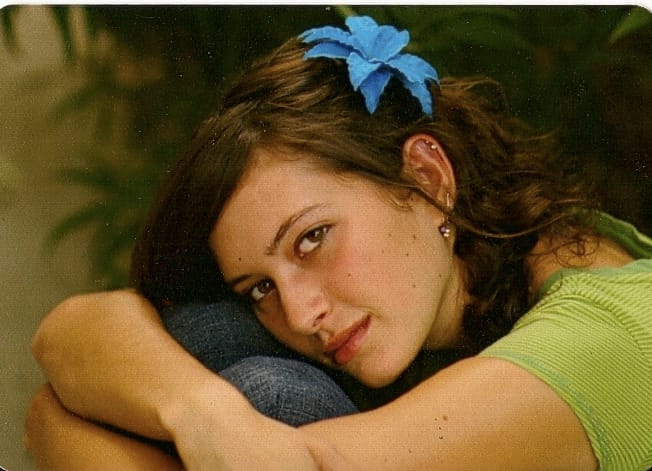Depression: silently coming apart at the seams

Trigger Warning: Mention of self-harm and suicidal ideation
In high school, I reinvented myself. In junior high I hid my extreme shyness and inner turmoil behind an obsession with horses. But as I transitioned from junior high to high school, I decided that I didn’t want to be “that weird girl” anymore. I had been involved in theater since I was 12 and simply utilized what I had learned. I wasn’t confident, but I could fake it. I’ve always been timid, but I had wanted to be a leader. And I wasn’t happy, but I could pretend I was. The result was a new identity – a fearless leader, alternative rock-loving girl, who was entirely herself no matter what anyone thought of her.
But I didn’t really know who I was.
This fabricated persona was a place to hide. She was very much like me, just better. Inside, I was insecure, constantly trying to pick up the broken parts of me and put them back together, but I didn’t know how they fit. I married myself to this identity; hiding or making excuses for things that I liked that I thought didn’t fit with this image, like pop music.
But hiding behind this identity didn’t stop the depression.
From a very young age, I would cry and not understand why. People asked me if I was okay when I was doing simple things like reading. I guess I just always looked sad. In high school, I spent my weekends going on hours long walks to nowhere in particular because I felt like my family didn’t understand me. It was me, sitting on top of a table in an empty park, swinging my legs off the side while on the phone with a friend. He listened to my thoughts and read me jokes from a book. I told him I had a plan to runaway, and he promised he would find me and bring me back. But I held a step away from full honesty, even with him.
My thoughts flowed onto paper, filling stacks of journals that no one else was allowed to see. They were too dark and desperate and confusing. I was afraid I would be abandoned if people could see what was inside of me. Sitting on the floor in circles with one or two close friends, the words would occasionally fall from my lips, echoing their thoughts as well. We bonded over sorrow.
The depression constricted my lungs, stealing my breath and silencing my voice.
It whispered in my ear that I would be abandoned if I told my friends and family. They would laugh at me, it said. They would be annoyed with me and everyone would look down on me. I felt like I was drowning. It felt like only music, journals, and a select few people understood me. Sometimes my mind was hollow and at other times so frenetic that it was unbearable. Self-harm was the only way I knew to find relief. And the only reason I stayed was that I felt my friends and family would be just as upset about me dying as they would about me opening up.
The depression ebbed and flowed throughout the years.
At times it was just a wave creeping up to my toes, and at others I was struggling to keep my head above water. My thoughts and feelings were erratic, shifting from irritability to excitement and heart-wrenching sadness. I would form bonds with people over my depression, but didn’t cling to many of them in the long term. In some cases, I would put my own woe aside to help another through theirs. Focusing on the needs of others was often a distraction from the pain in my heart.
With the onset of schizoaffective disorder, the depression took a new turn.
In the days leading up to my first symptoms of psychosis, the depression was new. I had put it aside to focus on my mom after a frightening cardiac event. But once she went back to work full-time, the depression washed over me and began to drag me under. It was no longer sadness, but emptiness. It was as if nothing mattered. I wasn’t hurting myself or crying for no known reason. I was picking at my food at the dinner table and lying awake for all but a few hours of the night.
The gut-wrenching pain, the oceans of tears, the blood I drew was never enough of a reason for me to seek help. But rapidly approaching a point where I could no longer hide it and keep up my happy, energetic persona was. The threat of no longer being able to pretend I knew who I was and act like I had it all together was the reason I stepped into a therapist’s office.
I can’t sit here and say to simply speak up.
It’s not that easy. Depression can dig its nails in as it grasps your throat. I couldn’t fight my own fears and speak up until I risked everyone finding out that I was broken whether I was ready for it or not. But when you are there, mired down with weights on your shoulders, know that you are not alone. I have been there. There are so many people who live with this kind of pain. Find people who you feel understand you. Find an outlet – journaling, drawing, creating, exercising, anything that helps you get it out. But don’t fear human connections. Don’t fear therapy. Don’t fear help. It can be frightening, letting go of something you’ve been intertwined with for so long and opening up about the most vulnerable side of you, but there is life after depression. There is so much more life to live.
For additional content, follow Not Like The Others on social media